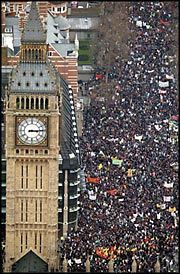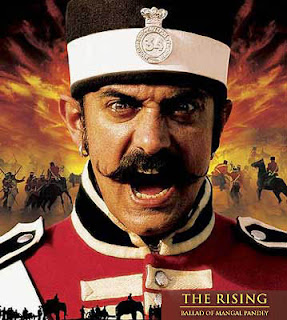'71 Part One. A Mindset of Mutual Exclusivity
In Bangladesh, events of 1971 have cast a very long shadow. A shadow that has lodged itself in the subsequent history of the nation. And even harangues the present.
Memories and rhetoric around '71 configures party politics. They shape foreign relations and populate imagination of artists, novelists and activists.
Two years ago, I spent a good deal of time in London. The University at which I did my MA, didn't have many Bengalis. Not being particularly ethnocentric, I didn't necessarily miss being around my Bong buddies. But eventually, I was broken into the community at Bricklane.
Many of my British Sylhetti friends were already suspicious of me because of they considered me Americanized. The idea of America didn't seem very popular among many British Bengalis, try as I might to explain my nationalist loyalties didn't necessarily lie there.
One of my friends asked me quite wittily, "So since you want to call French Fries Freedom Fries, why not call Pizzas Circles of Justice?"
At any rate, these Bengalis in London I was hanging out with were far from the religious types. Most of them were involved with various underground art and music worlds. And religion seemed as big an anathema to them as America.
At one point that evening, one of them asked me how I felt about 1971. It was a strange question. The answer seemed obvious to me.
So I asked him more specifically what he meant. My new friend went to ask if I picked the Bengali side or the Muslim side in that fight. Generally impatient to such crude, sophomoric taking of sides, I told him, "neither."
My friend didn't seem too happy with the answer. I tried explaining to him how at no point, did the freedom movement assume an anti-Islamic color. If anything, journalists like Lawrence Lifschultz who became famous for their valorous reportage of events of '71, went to great lengths to point out the piety of Bengali Muslims before, during and after '71.
Of course champagne socialists and fashionable Marxists were outspoken. But they were hardly representative of the larger fabric of Bengali Muslim society.
Bengali or Muslim? I can't help but sense what really lurked behind it was another question, "Awami League or BNP?"
Sure enough, it came.
"So are you Pro-Indian or Pro-Pakistani. "Neither," I told him. "I am pro-nothing. I like both India and Pakistan. Although I am not sure what you mean by 'Pro-India' and 'Pro-Pakistan.'
(To be continued)













